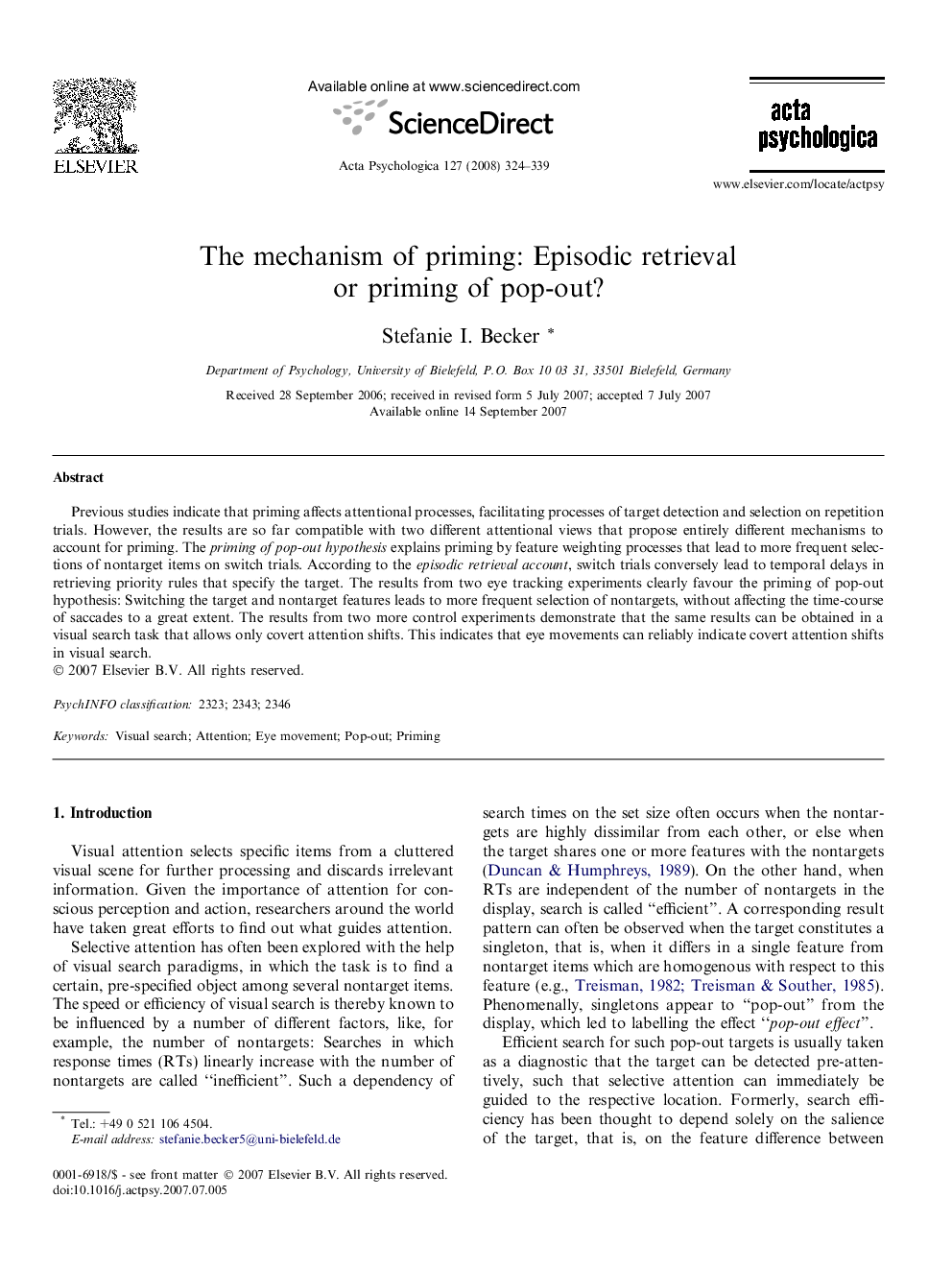| Article ID | Journal | Published Year | Pages | File Type |
|---|---|---|---|---|
| 920500 | Acta Psychologica | 2008 | 16 Pages |
Previous studies indicate that priming affects attentional processes, facilitating processes of target detection and selection on repetition trials. However, the results are so far compatible with two different attentional views that propose entirely different mechanisms to account for priming. The priming of pop-out hypothesis explains priming by feature weighting processes that lead to more frequent selections of nontarget items on switch trials. According to the episodic retrieval account, switch trials conversely lead to temporal delays in retrieving priority rules that specify the target. The results from two eye tracking experiments clearly favour the priming of pop-out hypothesis: Switching the target and nontarget features leads to more frequent selection of nontargets, without affecting the time-course of saccades to a great extent. The results from two more control experiments demonstrate that the same results can be obtained in a visual search task that allows only covert attention shifts. This indicates that eye movements can reliably indicate covert attention shifts in visual search.
